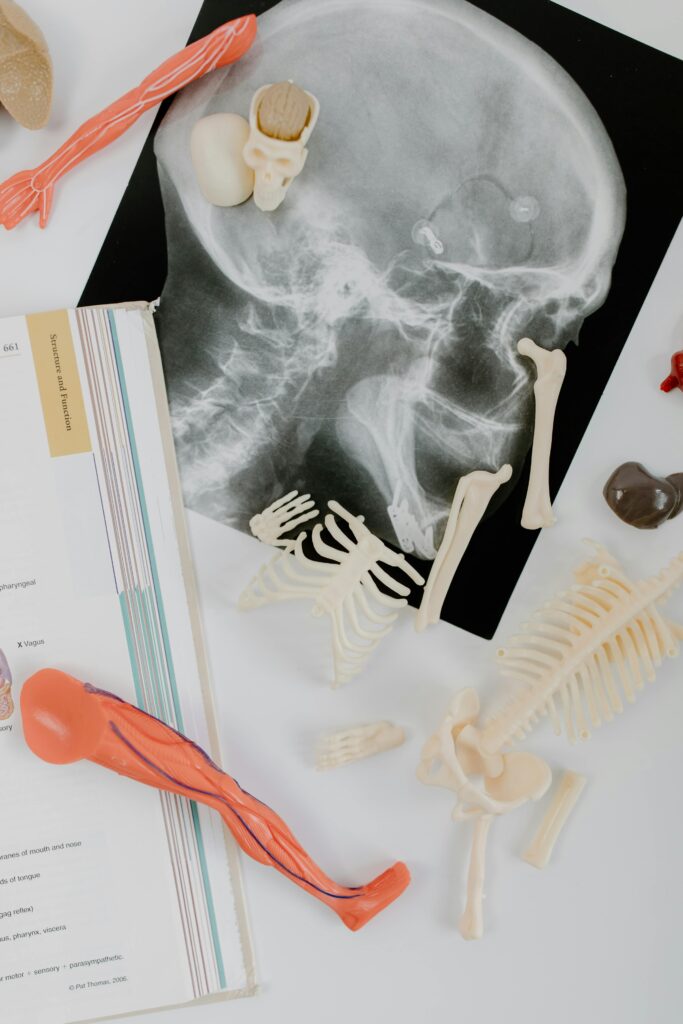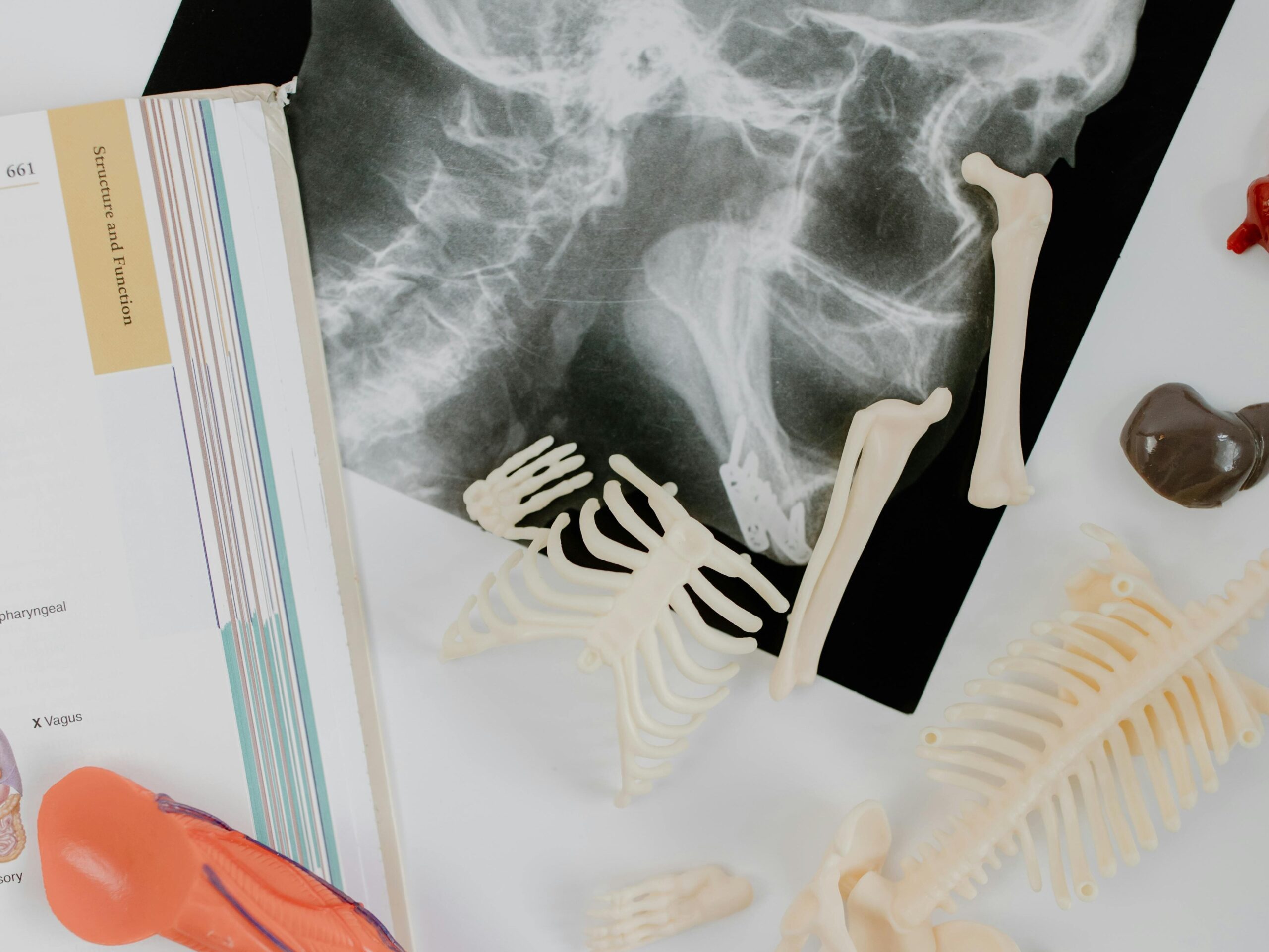Introduction: What is Osteoporosis?
Osteoporosis is a progressive bone disease characterized by a decrease in bone density and quality, making bones fragile and more susceptible to fractures. Often called a “silent disease,” osteoporosis develops over many years, and individuals may not realize they have it until a fracture occurs. It affects millions worldwide, particularly postmenopausal women and older adults.

Causes and Risk Factors
Osteoporosis occurs when the creation of new bone doesn’t keep up with the loss of old bone. Several factors can contribute to its development:
- Aging: Bone density naturally decreases with age, particularly after menopause in women due to decreased estrogen levels.
- Hormonal Changes: Conditions affecting hormone levels, such as thyroid disorders or low testosterone in men, can increase risk.
- Genetics: A family history of osteoporosis can make individuals more susceptible.
- Lifestyle Factors: Smoking, excessive alcohol consumption, and a sedentary lifestyle can weaken bones.
- Dietary Deficiencies: Lack of calcium and vitamin D can hinder bone health.

The Importance of Diet in Bone Health
Nutrition plays a critical role in maintaining healthy bones and preventing osteoporosis. Here are some dietary guidelines:
- Calcium-Rich Foods: Aim for 1,000 to 1,200 mg of calcium daily. Good sources include:
- Dairy products (milk, yogurt, cheese)
- Leafy greens (kale, broccoli)
- Fish (sardines, salmon with bones)
- Fortified foods (cereals, plant-based milks)
- Vitamin D: Helps the body absorb calcium effectively. Aim for 600 to 800 IU daily. Sources include:
- Fatty fish (salmon, mackerel)
- Fortified foods (orange juice, cereals)
- Egg yolks
- Sun exposure (10-30 minutes a few times a week)
- Protein: Essential for bone health, as bones are made of collagen, a protein. Incorporate lean meats, poultry, fish, beans, and legumes.
- Limit Caffeine and Sodium: High caffeine and sodium intake can lead to calcium loss. Moderation is key.
- Healthy Fats: Omega-3 fatty acids, found in fish, flaxseeds, and walnuts, may promote bone health.

The Role of Exercise in Bone Health
Regular physical activity is vital for maintaining bone density and strength. Here are some effective exercises to consider:
- Weight-Bearing Exercises: Activities that force you to work against gravity stimulate bone formation. Examples include:
- Walking
- Dancing
- Hiking
- Climbing stairs
- Resistance Training: Strength training exercises can increase muscle mass and improve bone density. Using free weights, resistance bands, or body-weight exercises like squats and lunges can be beneficial.
- Balance and Flexibility Exercises: Activities like yoga and tai chi can enhance balance and coordination, reducing the risk of falls and fractures.
- Consistency is Key: Aim for at least 30 minutes of weight-bearing exercise most days of the week. Building a consistent routine can significantly impact bone health over time.

Conclusion
Osteoporosis is a significant health concern, but with the right lifestyle choices, it is possible to prevent and manage this condition. Prioritizing a balanced diet rich in calcium and vitamin D, along with regular weight-bearing and resistance exercises, can help maintain bone health and reduce fracture risk. If you have concerns about osteoporosis or your bone health, consider consulting a healthcare professional for personalized advice.
For more guidance on maintaining a healthy lifestyle, reach out to our healthcare experts at Health Authentica.










